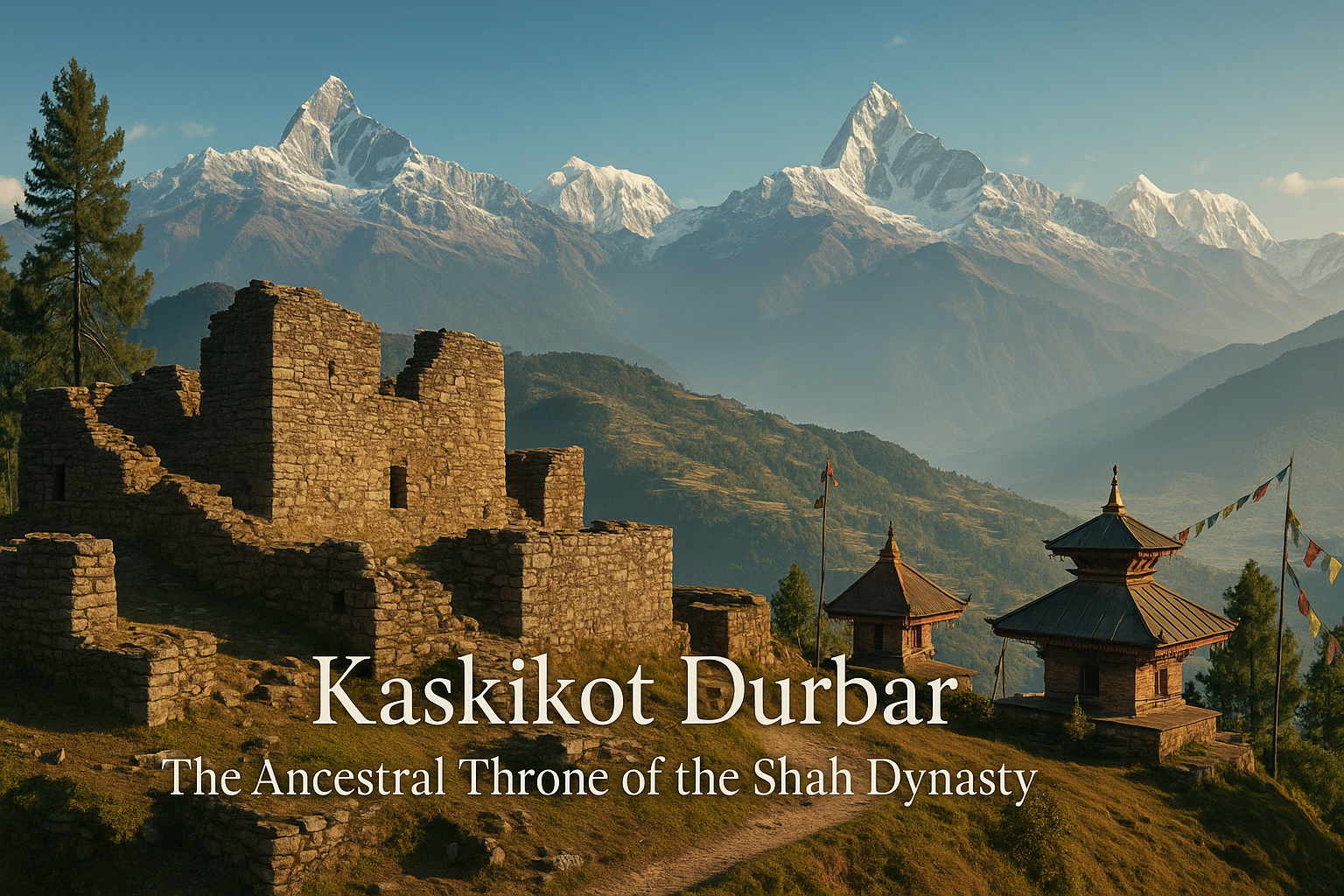“Where the kingdom of Nepal began—with stone, sword, and vision.”
Perched high on the hills west of Pokhara, Kaskikot Durbar is a historic fortress site that predates modern Nepal. Once the ancestral home of the Shah kings, including King Prithvi Narayan Shah, who unified Nepal in the 18th century, Kaskikot today is a quiet but powerful destination that offers panoramic Himalayan views, a glimpse into Nepali royal heritage, and a spiritual presence through its revered temples.
Though the original palace is now in ruins, the site’s historical aura, cultural legacy, and natural beauty remain intact—and deeply moving.
🏞️ Why Visit Kaskikot?
“From these hills, a nation was envisioned.”
- 🏯 Explore the remains of Kaskikot Durbar, the strategic hilltop palace of the Shah kings
- 🛕 Visit the sacred Kaalika Temple, a powerful Shakti Peeth still active today
- 🏔️ Enjoy uninterrupted views of Annapurna, Machhapuchhre, and Dhaulagiri ranges
- 🌄 A popular sunrise and sunset spot, quieter than Sarangkot
- 📚 Learn about the origins of Nepal’s monarchy and local Gurung communities
🧭 Ideal for history lovers, spiritual seekers, and nature photographers alike.
📍 How to Get There
- 🚖 By road: 12 km west of Pokhara (~40 mins by car or scooter)
- 🥾 Trekking route: Combine with a hike from Sarangkot or Naudanda
- 🛵 Road access via Sarangkot – Kaskikot – Dhampus trail loop
💡 Local Tip: Visit early morning for fewer crowds and golden Himalayan light.
🛕 Highlights of Kaskikot
- 🏯 Ruins of the fort with stone foundations and ancient courtyards
- 🔱 Kaalika Temple: Hosts annual Dashain rituals and animal sacrifices
- 🌄 Sunrise point with panoramic views of the Pokhara Valley and mountains
- 🧑🤝🧑 Interactions with local Gurung and Brahmin communities in the surrounding village
- 📜 Nearby heritage: Satahun Chaur, a ceremonial field used by early kings
🗓️ Best Time to Visit
- October to April for clear skies and mountain visibility
- Early morning or late afternoon for photography and meditation
- Dashain festival period for cultural immersion at the temple
